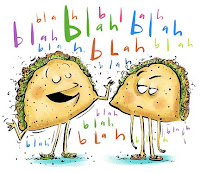Grice's Cooperative Principle
Posted by prokontra13
Posted on 12:34 AM
with No comments
The Gricean cooperative principle refers to the concept of the philosopher Grice about the cooperation between speakers in using the maxims. The cooperative principle makes our contribution such as it is required, at the stage at which it occurs, by the accepted purpose or direction of the talk exchange in which we are engaged. Levinson (1985) states that the Gricean cooperative principle is construed as a theory of communication; it has the interesting consequence that it gives an account of how communication might be achieved in the absence of any conventional means for expressing the intended message. A corollary is that it provides an account of how more can be communicated, in his rather strict sense of non-naturally meant, than what is actually said.
In sorting out the different conversations can be very complex. There are, however, four maxims that can be regarded as general principles in all conversations, those are:
(1) The Maxim of Quantity, try to make your contribution as informative as is required, in the other words, do not make your contribution more or less informative than is required;
Example of violation:
A: What time is it?
B: It's two a'clock, in fact it's four pass two, and now it's Sunday.
(2) The Maxim of Quality, try to make your contribution one that is true. At this point, to make your utterances understandable, you have to avoid saying something that you believe to be false or lack adequate evidence;
Example of violation:
A: What is the Capital City of Indonesia?
B: I believe it's Bogor, or maybe Jakarta, Indonesia has wide territory.
(3) The Maxim of Relevance, try to make your contributions relevant. It means you have to say some information which is related to the topic;
Example of violation:
Mom: Have you done your homework?
Son: My bicycle is broken mom.
(4)The Maxim of Manner, try to make your utterance as clear, as brief, and as orderly as one can in what one says, and avoid obscurity and ambiguity.
Example of violation:
" It’s the taste" (ads of Coca cola)
..............................................................................
See also:
Grice's cooperative principle
Cooperative Principle: Implicature
Cooperative Principle: Flouting Maxims
The Hedging of Maxims











0 comments:
Post a Comment
If you have other contemporary issues, questions, suggestions, criticisms, disagreements, or even rejections, please leave comment politely...